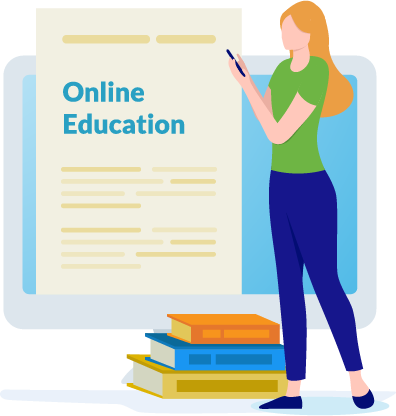Summer Programs
We support our students with personalized instruction and practice.
Evoke’s summer programs help students gain the skills, knowledge, and confidence they need to succeed and realize their academic potential.
We offer personalized instruction and lots of opportunity for learning and practice.
Evoke’s individualized summer programs help to minimize the effect of deficits in academic and organizational (executive function) skills and prepare students for the next academic year, including any upcoming transitions to high school or postsecondary studies.
Our Summer Programs Include:
ADHD and Executive Function Coaching, Grade 9-Postsecondary
Coaching is a proven method for creating and managing change. Evoke’s coaches help students reflect on their strengths and weaknesses, prepare their mindset, think ahead, and set goals for the next year.
Postsecondary Transition (Grades 10-12)
We move beyond traditional standardized questionnaires to give students an early, personalized, thoughtful, and comprehensive plan for thriving in a postsecondary environment.
Academic and Writing Strategies (Grades 4-8)
This program teaches students, step-by-step, a variety of evidence-based strategies that help them manage the writing process and improve what they write. The program assists students with every phase of the writing process, from brainstorming and goal setting to proofreading and revision strategies.
Academic and Writing Skills, (Grades 9-12)
Our program provides high school students with an introduction to the writing demands of both high school and postsecondary education.
Math Recovery (Grades 4-12)
The program reinforces understanding over memorization and gives students the extra time to relearn critical skills and concepts and target specific learning deficits, accelerating proficiency.
Gadget Gurus: Assistive Technology
(Grades 4-Postsecondary)
Students will explore how to use technology to help them stay organized, read text with meaning, write their best work, take effective notes, study, research, annotate, and edit their work.
Are you looking for more information about our summer programs?
Providing Students with Personalized Learning & Reading: How Evoke Can Help
Research highlights that high-dosage tutoring, delivered at least three times a week, is one of the most effective educational interventions for addressing academic gaps, especially when it is closely linked to in-school curriculum.
We incorporate this approach into our programs to help close the gaps for students and teach skills that stick. Summer is the perfect time for students to boost those skills, since they aren’t carrying a normal academic workload and have more time to devote to improving them.
Evoke’s approach is what makes us uniquely effective for students who struggle with reading, writing, math, expressive language, and executive functioning skills.
We ensure that students have a thorough understanding of their current grade-level curriculum before transitioning into the next. We can reteach or help students to relearn concepts and material with which they struggle so that they are well prepared for the new school year. We reinforce concepts in math, science, and literacy to improve academic outcomes; ensure understanding; and assist students in achieving grade-level expectations and achievement levels. We offer critical skill development and remediation in math, reading, and writing for elementary and high school students to increase student competency.
For students with executive function challenges, Evoke teaches students the key foundational concepts necessary for academic performance, informed by current cognitive science, such as how to study, research and analysis skills, note-taking strategies, managing procrastination, the science of motivation, and time management.
Who we work with
Students with executive function challenges
For students with executive function challenges, Evoke teaches students the key foundational concepts necessary for academic performance, informed by current cognitive science, such as how to study, research and analysis skills, note-taking strategies, managing procrastination, the science of motivation, and time management.
High school students
Our academic strategists and tutors can assist high school students who are taking online courses over the summer, helping them stay on task, understand material, complete assignments, and prepare for tests and exams.
Students with self-regulation and processing challenges
Our practitioners can assist students who have self-regulation and processing challenges who may need more individual support for learning and more time to understand and retain material.
Our summer programs offer flexibility and convenience to accommodate your vacation or cottage plans.
The Benefits of Online Learning
Evoke works with clients exclusively online across borders and time zones.
The benefits of online learning include the elimination of commuting time for sessions, the incorporation of assistive technology and other online resources into instruction (i.e., Google Docs for collaboration and work that is automatically saved, the use of voice-to-text and text-to-speech programs), and flexibility around session length, particularly for students who have challenges sustaining self-regulation for long periods of time. Evoke specializes in supporting neurodiverse learners: students with learning disabilities (such as dyslexia), ADHD, autism and/or executive function challenges.
With online learning, students can access specialized support regardless of where they live and enjoy a higher level of confidentiality of services. By offering remote instruction, Evoke can hire the best practitioners from across North America and beyond. Online instruction creates a mindset that embraces learning and technology, gets students organizing themselves virtually so they are less likely to lose materials, and allows them to access their work from anywhere at any time.


Private and Personalized Instruction
At Evoke, we strive to create a virtual tutoring environment for students that emulates a face-to-face experience and provides authentic opportunities for students to engage.
We do not offer any group programming; all services are delivered one-to-one by tutors with advanced technological skills. Research has shown that accommodations are the most common response to the diagnosis of a learning disability in school settings, as opposed to the use of evidence-based intervention; however, accommodations are designed to allow for access to educational opportunities, not necessarily to cultivate success in a particular task. Evoke’s remediation and recovery programs therefore offer effective skill development through quality interventions that focus on long-term outcomes that help students to become independent and successful adults. The focus of intervention should always be to prioritize the acquisition of skills for independent functioning that helps students develop into healthy adults who can cope on their own. Reducing expectations does not help students develop the competencies that lead to autonomy. Accommodations are helpful while students are developing the necessary skills and competencies, however they are not a long-term solution.
